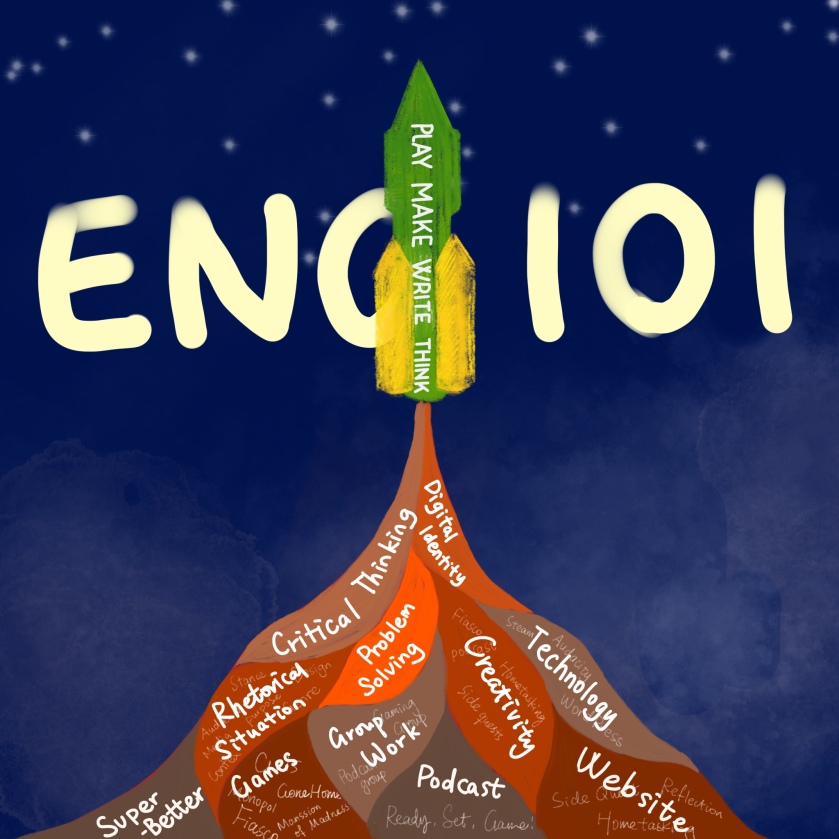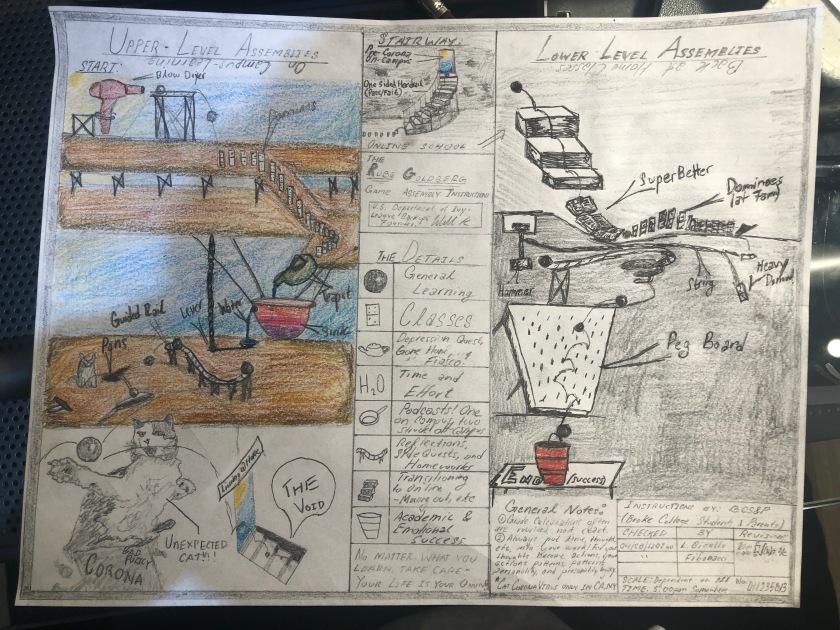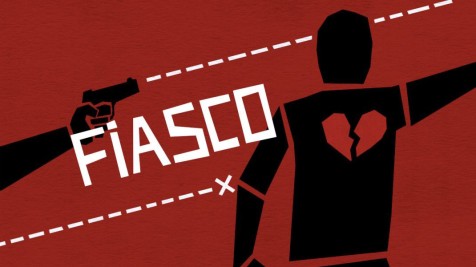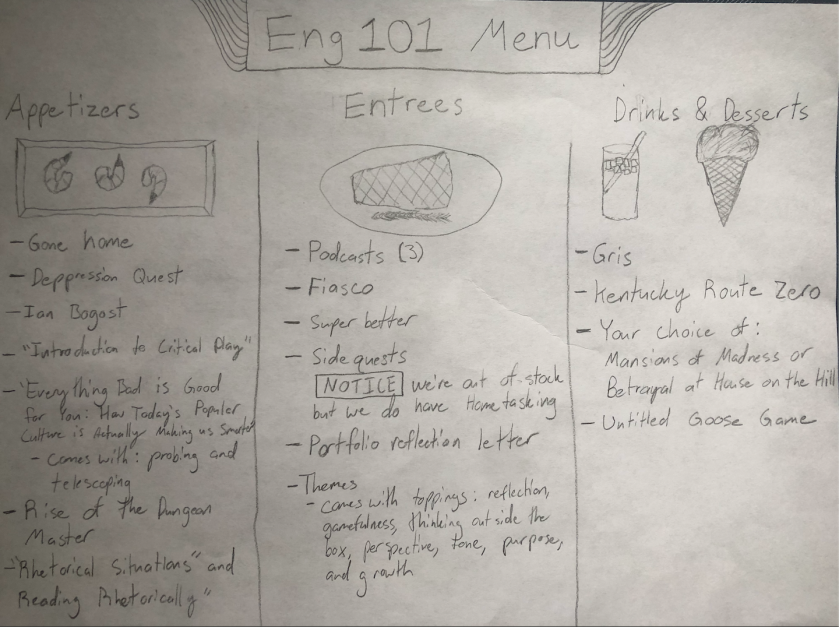Final Reflection
My roommate recommended this class to me. She was taking Professor Morgen’s freshman writing class last semester, sharing all the interesting assignments like “mimicking a film scene” with me. I was a little bit jealous and so impressed by how students in the class are encouraged to do the creative works. So, without a doubt, I chose professor Morgen’s class this semester as well. It turns out that taking English 101 is one of the wisest choices I have made for my freshman class registration. I felt so engaged and appreciate the growth that this class gave me. Let me lead you to go through the amazing course and what it has taught me.
The rhetorical composition is an essential skill that we are supposed to learn from the writing class. The class, Play Make Write Think, encouraged me to compose in multiple modes: writing, speaking, videoing, painting, and so on. By all these means, I found a way to express my ideas to a broader audience with spurred wiliness and confidence. This time, we were not only asked to write a page for the professor to read but also to a much large group of audience who were total strangers. Of course, publishing the work to the public was quite hesitating at first. Imagining the work would be posted on a public platform, and to be viewed, at least, by all the classmates is uncomfortable, or a little bit embarrassing. I still remember when posting the first Avatar Sidequest, though I finished the content in advance, it took me a lot of time and courage to click on the publishing button because I was afraid of not doing good and being judged by others. But, through times of posting, the fear gradually faded away. I turned to be comfortable with publishing my work online after making my first podcast. In my first podcast, as the line producer, I was responsible for a performative voice-over part; and it was the first time I literally talked to the unknown audience, with the most shaming voice I could ever get: me intentionally pretending like a factitious high-school girl. But for the sake of the interestingness, we made the voice-over as a big part of the episode. After accepting the worst version of my voice, producing the rest—making the other two podcasts, videoing for Sidequests, posting reflections on WordPress—would not be problems for me. After transiting to the remotely studying mode, people rely heavier on the internet to study or communicate; profit from this class, I am no longer afraid to compose via different media to a general audience and enjoy conveying my ideas to other people.

I am grateful that the class Play Make Write Think pushed me forward to talk, which makes me a more collaborative person in the group. To be honest, as I have performed in many other courses in the college, I am never the rustler in the classes, sometimes being too shy to share my idea in public or just not a fluent verbal expresser. At first, seeing the syllabus saying that participation is critical in this class, I was so apprehensive. However, getting more involved in the class, I found out that participating actually required the least effort. Game is such a relaxing topic to talk about that I felt much more confident and willing to share my experiences with others, to voice my ideas out, and to feel engaged in the discussions. Contributing to the class discussion is no longer as a demand but a genuine urge to communicate with classmates. As the class moving on, more and more opportunities came forth: playing multiplayer games like Mansions of Madness and Fiasco, producing the podcasts, posting the Hometasking challenge on the public website, and so on. Opening myself, I became accustomed to communicate with the classmates, or sometimes the other players too. The communicating skills helped me to have a great time exchanging ideas and to generate new one from another.
Though English 101 Play Make Write Think came to me as a writing class, I would like to say that for the most of the time, students are creating rather than writing. The compositions in the class is not bounded by media, which gives us a chance to express our ideas through the most appropriate way we would like. Meanwhile, writing became a process, best reflected in the podcast producing. For the three podcasts we produced, we gradually improved. For the first podcast Doki Doki Literature Club, there was not a clear structure at first. When recording the contents, the words just freely flowed out, saying the first thing came to our mind as analyzing the game. The lack of a general structure makes the post-edition much more time-consuming than we thought it would be. Learning from that, we figured out that even the aural composing includes writing as a process. Taking composition step by step is the most efficient way to form an intact piece of work. Keeping this idea in mind, we changed our working process for the works later: coming out with an outline with bullet points we summarized from meetings with Professor Morgen, adding details separately on the aspects that we were interested in, going through each other’s points to give suggestions and to come up with transitions, and coming up with a final draft to record accordingly. Even though we were physically separated due to the quarantine, we still complete the other two podcasts about Plague Inc. and Undertale enthusiastically and productively. The final conclusion is also a crucial step in completing the podcast. Based on the reflection of the previous podcasts, we accumulate the experience and apply the lectures to the next one. It might be cliché, but I could really feel that the error of the past is the wisdom of the future.
Critical thinking is another valuable learning outcome for this course. Just as we have come up within our Plague Inc. podcast, “sometimes a game is more than a game.” We analyzed how an entertaining game also carries the mission of educating, mentally consoling, and promoting introspection. When I play a game now, I try to stand in the developer’s shoes, probing the purpose of why and how they produce the game, which is also suitable to be applied in other fields. Learning from the book SuperBetter, I now try to apply McGonigal’s thoughts of how games are made for a purpose: to view our life with a gamely sight. Also, by analyzing the games, I begin to think critically. As I have mentioned in my podcast reflection, I found out that there is a common characteristic shared by the three great games we focused on: breaking the fourth wall. It is not hard to broaden this conclusion that the audience nowadays enjoys the blurry boundary between the virtual world and reality. The practical and critical thinking ability I have prepared for this class is leading me to become a better analyst, which is apparently helpful on my future journey studying in the college.
Overall, English 101 Play Make Write Think, different than a traditional writing class, is more adaptive in the modern world where people take their digital citizenship an inseparable part of themselves. Taking this class, I am not only introduced to various practical technologies like WordPress, Audacity, even Procreative, the application I sometimes use to draw for the Sidequests; but I am also encouraged to grow: to composed through various modes, to step out of my comfort zone communicating and collaborating, and to be capable of thinking critically and independently. From English 101 Play Make Write Think, I have learned a lot of skills that I will definitely apply to the future classes. Thanks to such a great lesson that it overall makes me a better person in writing, studying, and self-expressing.












